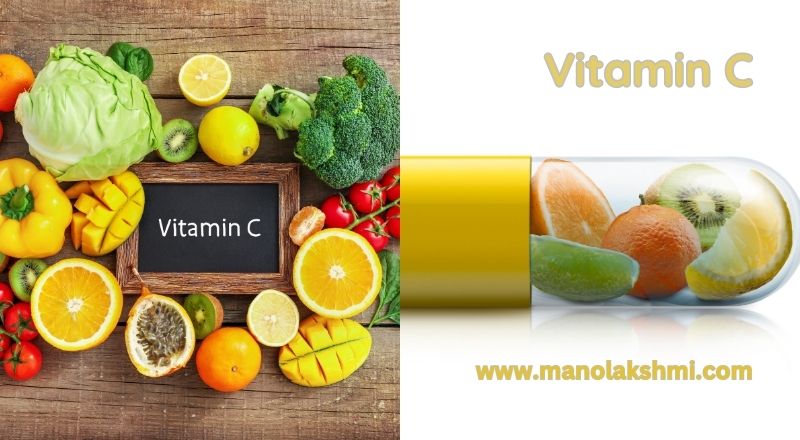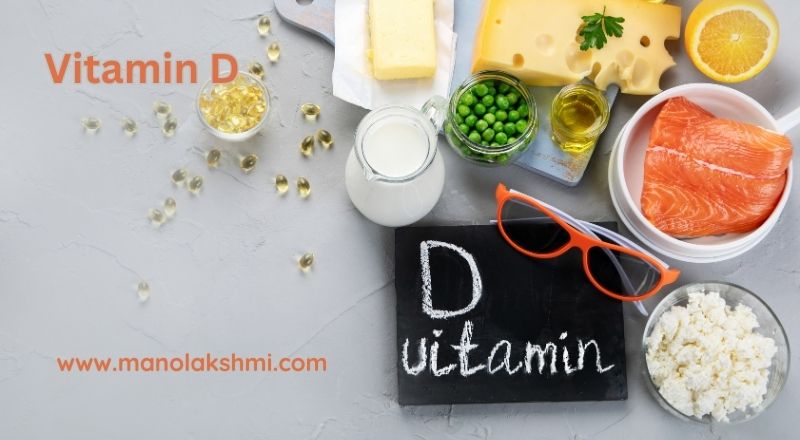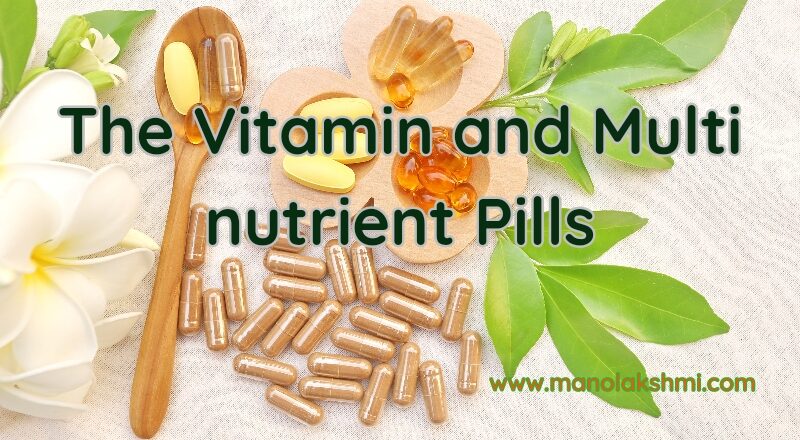What are Vitamins?
Vitamin are essential organic compounds that are required by the body in small amounts for proper growth, development, and functioning. They play a vital role in maintaining good health and preventing various diseases. 13 vitamins are currently recognized, and they are classified into two categories – water-soluble and fat-soluble.

Water-soluble vitamins include vitamin C and the B-complex vitamins, such as B-1 (thiamine), B-2 (riboflavin), B-3 (niacin), B-5 (pantothenic acid), B-6 (pyridoxine), B-7 (biotin), and B-9 (folic acid). These vitamins are not stored in the body, so they must be replenished daily through diet or supplements.
Fat-soluble vitamins A, D, E, and K. They are stored in the body’s fatty tissues and liver, so they don’t need to be replenished as frequently as water-soluble vitamins. However, getting enough of these vitamins is still important to maintain good health.
Each vitamin has an explicit role in the body. For norm, vitamin A is crucial for fiction and the immune process, while vitamin D is important for bone health. It’s important to get a balanced intake of all vitamins through a healthy diet that includes a variety of fruits, vegetables, whole grains, lean protein, and healthy fats.
What are multivitamins?
Multivitamins are dietary excursions that contain a variety of vitamins and minerals. They are developed to furnish the body with essential nutrients that it may not be getting enough of through a regular diet. Multivitamins come in various forms such as tablets, capsules, soft gels, powders, and liquids. Some multivitamins are tailored to meet the specific needs of different groups of people such as pregnant women, children, and seniors.

They can help fill the gaps in your diet by providing essential nutrients that you may not be getting enough of through food alone.
It can help support overall health and wellness.
They may reduce the risk of chronic diseases such as heart disease, cancer, and osteoporosis. Improve cognitive function and mood.
They may boost energy levels and enhance athletic performance.
It’s important to note that multivitamins should not replace a balanced diet. They are intended to supplement a healthy diet and lifestyle. It’s always a good idea to talk to your healthcare provider before starting any new supplement regimen.
Vitamins Health Benefits
Vitamins are vital nutrients that the body needs to act properly. They can be obtained through a healthy and balanced diet, and in some cases, through supplements. Here are some of the health benefits that come with consuming vitamins:
Vitamin A:
Helps support healthy vision, skin, and unsusceptible system.

Vitamin A is a crucial nutrient for maintaining healthy vision, immune function, and cell growth and development. Fat-soluble vitamin A found in animal-based foods like liver, eggs, and dairy products, and some plant-based foods convert beta-carotene into vitamin A.
This includes carrots, sweet potatoes, and spinach. Consuming too much vitamin A can cause toxicity; maintain daily intake for optimal health. Some signs of vitamin A deficiency include night blindness and dry skin. Incorporating vitamin A-rich foods into your diet can help ensure that you are meeting your body’s nutritional needs.
Vitamin B:
Plays a key role in energy production and brain function
Vitamin B is an essential nutrient that plays a crucial role in maintaining good health. There are eight different types of B vitamins, each with their unique benefits. Here are some key points to keep in mind when it comes to Vitamin B:
B vitamins aid convert food into vitality.
They are essential for healthy brain function and the production of red blood cells.
Vitamin B deficiency can lead to a range of health problems, including anemia, skin disorders, and nerve damage.
Good sources of Vitamin B include meat, fish, dairy, whole grains, and leafy vegetables.
While most people can’t get enough Vitamin B through their diet, some may need to take supplements, particularly those with certain medical conditions or dietary restrictions.
Memorize to confer with your healthcare provider before beginning any new addition regimen.
Vitamin C:
Boosts the immune strategy and aids in collagen show

Vitamin C is a crucial nutrient that plays a vital role in maintaining a healthy body.
Vitamin C is an antioxidant that helps save cells from harm forced by free radicals.
It is also necessary for the growth, development, and repair of body tissues.
Vitamin C is found in many fruits and vegetables, including citrus fruits, strawberries, kiwi, guava, bell peppers, broccoli, and kale.
The recommended daily intake of vitamin C for adults is 75-90 mg, but some people may require higher doses due to certain medical conditions or lifestyles.
Vitamin C deficiency can lead to scurvy, a rare but potentially life-threatening condition that causes weakness, anemia, gum disease, and skin problems.
On the other hand, excessive intake of vitamin C can cause digestive issues, such as nausea, diarrhea, and cramps.
getting enough vitamin C is essential for maintaining good health and preventing various diseases.
Vitamin D:
Helps the body absorb calcium, enabling bone health
Vitamin D is a vital nutrient that plays a vital role in retaining overall health and well-being. Here are some additional points to consider about Vitamin D:

It helps the body absorb calcium, which is critical for vital bones and teeth.
Vitamin D also helps regulate the immune system and can reduce the risk of infections, such as respiratory infections.
Exposure to sunlight is a natural way to obtain Vitamin D, but it can also be found in foods like fatty fish, egg yolks, and fortified dairy products.
People who don’t get enough Vitamin D may be at risk for conditions like osteoporosis and rickets.
It is important to talk to a healthcare provider about whether or not you are getting enough Vitamin D and if supplementation is necessary.
Vitamin E:
Actions as an antioxidant, guarding cells against damage.

Vitamin E is a fat-soluble vitamin that is crucial for useful health. It is found innately in many meals, including nuts, germs, and leafy green vegetables. Vitamins E has antioxidant properties, which means it can help protect cells from damage caused by free radicals. Free extremists are unsafe molecules that can damage cells and donate to the growth of chronic illnesses such as cancer, heart disease, and Alzheimer’s disease.
It supports the immune system and helps the body fight off infections
It’s may help improve skin health and reduce the signs of aging
It’s may help reduce inflammation in the body
It may help lower the risk of cataracts and age-related macular degeneration
While Vitamin E is important for good health, it is also important to consume it in moderation. Consuming too much Vitamin E in supplement form can be harmful and may increase the risk of bleeding. It is best to try to get the suggested daily dose of Vitamin E from food citations whenever possible.
Vitamin K:
Help in blood clotting and bone fitness.

Vitamin K is a paramount nutrient that plays an integral role in blood clotting and bone health. Vitamins found in leafy greens, broccoli, and Brussels sprouts as a fat-soluble vitamin.
There are two main sources of vitamin K: K1 and K2. K1 is found in plant-based foods, while K2 is found in animal-based foods and fermented foods.
Vitamin K deficiency increases risk of bleeding, osteoporosis, and fractures.
Vitamins K injection administered to newborns to prevent bleeding disorders.
Studies have suggested that it may help improve insulin sensitivity, reduce inflammation, and even protect against certain types of cancer.
Vitamin K is generally safe, but high doses can interfere with medications like blood thinners; consult a doctor before taking supplements.
Would you like to take a vitamins?
Resistance-building theory suggests daily vitamin C intake is unnecessary, as long as diet C is sufficient.
The problem with this theory is that vitamins. Have a narrow window of benefits that are must by many people daily. Most of us will find we don’t need it.
Theoretically, a diet can offer vital nutrients. It’s difficult to gain.
Today’s world leaves little time for us to have a nutritious meal and exercise. Years of deficit have shaved our soil of the ability to reach crucial nutrients. We must look for additions to fill in the gaps. Stress has an effect. We do not get adequate rest aside from exercise.
Who wants vitamins?

All adults and youths will take charm in a multi-vitamin codicil. Our food Deserve usually lacks Calcium, iron, zinc, copper, and metallic details.
Iron defects are common in women; strict vitamins are proven to improve health and well-being.
B vitamins are a group of water-soluble vitamins that play a vital role in mortal health. They help to make power from food and normal growth. Red blood cell array, and the tense system. Affect the main nervous system and can help balance moods.
People with urinary organ diseases have less cholesterol in their system. They cannot replace the place of a flat diet with vegetables and fruits.
Here is a multi Nutrient
There are several new supplements on the market that you would not have hoped to see. Many people are turning toward detoxification drinks and capsules.

To stop heavy metals and help destroy toxins. Taking parts increases. The wholesome effects of E. Multi nutriment Pills with 18-hour Fast-Action.
The Best Way to Take Care of Your Body you must be capable of picking. Out the changes among merchandise as a way to make sure. You are making first-rate viable picks.
You must be capable of picking out the changes among products. As a way to make sure that you are making terrific viable picks. The top vital aspect is to take a look at it.
It is critical that you can discover the differences. Among products make sure that you are making the fine viable choices. It is important that you can perceive the variations.
Between distinctive products to ensure that you are making high-quality viable alternatives.
Click here: Email: Effectively write your thoughts and send emails
